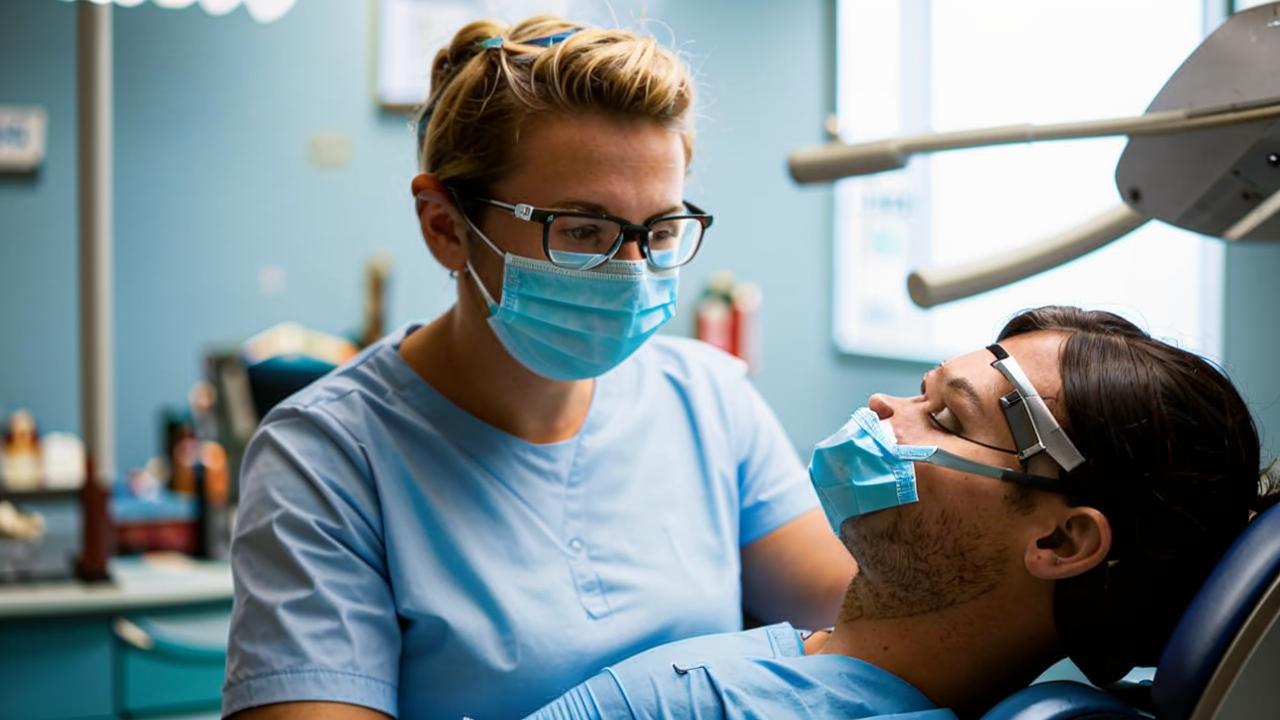Tooth extraction is a common medical procedure that can become necessary for a variety of reasons, including tooth decay, injury, or wisdom tooth problems.

Konstantin Prokopenko
Orthopedic dentist, surgeon, implantologist
“It is important to follow certain precautions and specialist’s recommendations to avoid complications, speed up the healing process and maintain overall oral health.”
Ignore relaxing treatments
After a tooth extraction, it’s important to give yourself plenty of time to rest and recover. Avoid stressful situations and try to relax. A warm bath will be helpful.
Meditation, yoga, or just a walk in the fresh air can also be relaxing. Sounds of nature or calm music will help reduce stress and improve your overall well-being.
Don’t forget about proper nutrition – eating fresh fruits and vegetables, rich in vitamins and minerals, also contributes to faster healing after tooth extraction. It is important to remember that psychological comfort plays a huge role in the recovery process.
Engage in physical activity
In the first few days after tooth extraction, it is advisable to avoid strenuous exercise and heavy lifting. Physical activity can cause bleeding or additional pain. It is better to limit yourself to easy walks and avoid any activity that can increase blood flow in the mouth area. Don’t forget that you need to give your body time to recover from the procedure.

Smoking and alcohol consumption
After a tooth extraction, doctors usually recommend that you refrain from smoking and drinking alcohol for the following reasons:
Smoking:
- Nicotine and other chemicals in cigarette smoke slow healing and increase the risk of infection in the hole of the extracted tooth.
- Lingering smoke disrupts the formation of a blood clot, which can lead to inflammation of the hole.

Alcohol:
- Alcohol consumption slows down the healing process as it has a negative effect on the immune system.
- Alcohol also irritates the oral mucosa and increases the risk of bleeding.
Consuming hot food and drinks
It is important to avoid consuming hot food and drinks in the first few days after tooth extraction, as it can lead to negative consequences:
1. Risk of damage. Direct exposure of the extracted tooth area to high temperatures risks irritation and severe pain, as well as damage to the wound. Hot food or beverages can aggravate pain and slow down the healing process.
2. Increased risk of bleeding. Hot food or drinks help dilate blood vessels and increase the risk of bleeding from the wound after a tooth extraction. This can complicate the healing process and lead to potential problems.
3. Possible damage to blood clots. After a tooth extraction, a blood clot forms in the wound, which protects the wound from infection and promotes healing. Consuming hot food or drinks can damage this clot, increasing the risk of infection and other complications.

Apply mechanical pressure to the wound
It is important not to use tube straws, chew food vigorously on the same side where the tooth extraction occurred. These actions can cause compromised clot formation, leading to pain, bleeding, and other unpleasant consequences:
1. Bleeding. Pressure on the wound can cause bleeding, making healing more difficult.
2. Infections. Mechanical pressure on the wound can damage newly formed tissue and open the way for bacteria, increasing the risk of developing an infection.
3. Pain and discomfort. There may be increased pain and discomfort after a tooth extraction.
Postponing a visit to the dentist
Follow-up visits and consultations with a specialist will help track the healing process and prevent possible complications. After a tooth extraction, it is important not to neglect oral hygiene for the following main reasons:
1. Preventing infection. After a tooth extraction, a wound is created that can become a port of entry for bacteria and infections. Regular wound care and mouth cleaning can help prevent the development of infection.
2. Accelerating the healing process. Proper oral hygiene promotes faster wound healing after tooth extraction, reducing the risk of complications and discomfort.

3. Preventing tooth decay. Poor oral hygiene after a tooth extraction can promote tooth decay on neighboring teeth due to bacteria buildup and food debris.
4. Reducing the risk of irritation and pain. Brushing your mouth helps reduce irritation and pain in the wound area after a tooth extraction.
If you notice unusual symptoms such as severe pain, bleeding, or infection, see your dentist immediately.
Neglecting oral hygiene
Immediately after a tooth extraction, it is very important to pay special attention to wound care. Bleeding and swelling are common consequences of such a procedure, so for the first few hours it is important to follow the doctor’s recommendations and avoid exposure to the wound. Failure to do so can cause repeated bleeding or infection, which will slow down the healing process.
By following the above recommendations, you can speed up the healing process and avoid complications. Do not forget that timely visit to the dentist and strict compliance with postoperative recommendations – the key to successful recovery.





